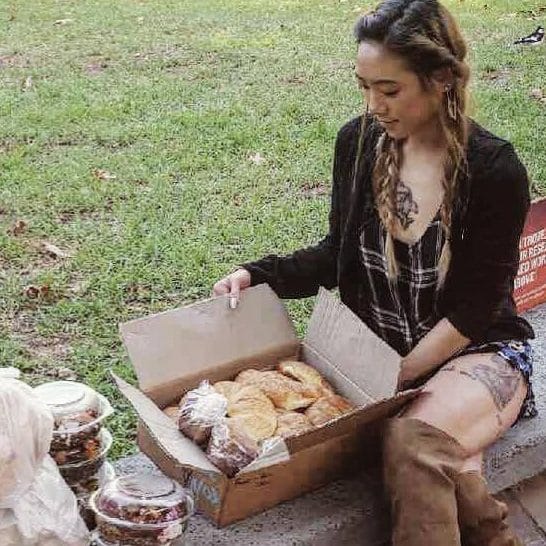Uni students rescue food for homeless
🔗 [SYSTEM UPDATE] Link found. Timestamp incremented on 2025-11-26 13:55:13.Students at La Trobe University are tackling food wastage head-on as they collect surplus food from campus cafes and provide meals for the homeless.


By JAMAL HADDOU,
education editor

University students are pushing to prevent food wastage at campus cafes and restaurants.
Two birds, One Scone is a new student-run club at La Trobe University dedicated to feeding Melbourne’s hungry and homeless while reducing food waste.
Every weekday student volunteers collect edible food that would otherwise be thrown out by campus restaurants and instead deliver it to food rescue organisations that provide meals for the needy.
Two Birds, One Scone founder and president Melissa Lee said students should take charge as many campus businesses did not have food waste policies.
“Whether this operation expands in all of Australia or just Melbourne, the fact that it runs nearly every day means that there’s less food going in the bin and more going towards those that will appreciate it,” she said.
The organisation is encouraging other university students across Australia to put food to good use.

“I will expand this to other universities through social media. I already have connections with students around Melbourne from other colleges which is a great help,” she said.
From 30kg to 50kg of food is thrown out every week at the La Trobe University Bundoora campus alone.
Monash, RMIT, La Trobe and Melbourne University combined have dozens of cafes and restaurants on campus. Many of these businesses accumulate kilos of food waste by the end of the day.
Ms Lee said universities should encourage campus businesses to enact food waste policies.
“Students are apathetic towards food wastage and I don’t think universities are doing enough to enforce the minimisation of the issue. This is where the club steps in and tries to make that change,” she said.

Recent data obtained by FoodWise shows young consumers aged 18-24 are the biggest food wasters in Australia.
Australians throw out around $8 billion worth of edible food every year – equating to 4,000,000 tonnes.
Food that ends up in landfill produces methane, which is 25 times more potent than the carbon pollution that comes out of a car exhaust.
In addition to environmental benefits, collecting surplus food also helps charities save money and extend their services.
SecondBite chairman and co-founder Ian Carson said food donations from businesses were vital for his organisation to deliver millions of meals.

“In 2016 we will receive over eight million kilograms of food which will equate to over 16 million meals,” he said.
“Businesses in Australia increasingly understand that their staff and society want them to rescue this food,” he said.
Australia produces enough food to feed approximately 60 million people, yet two million people still rely on food relief every year, according to Oz Harvest statistics.
Nearly 90 per cent of food relief agencies report not having enough food to meet total demand. Almost two-thirds of agencies require at least 25 per cent more food to meet demand. The remaining 30 per cent of agencies require twice as much food as they are currently receiving.
Food Wise estimates Australian businesses produce 1.3 million tonnes of food waste each year. The National Waste Report estimates 21.5 per cent of commercial and industrial waste is food.
Food relief organisations such as SecondBite rescue millions of kilograms of food from businesses. However, they do not reach most university cafes and dining halls.
Ms Lee said it was important her organisation was run by students so younger people could be educated and engaged in food rescue both now and in the future.





